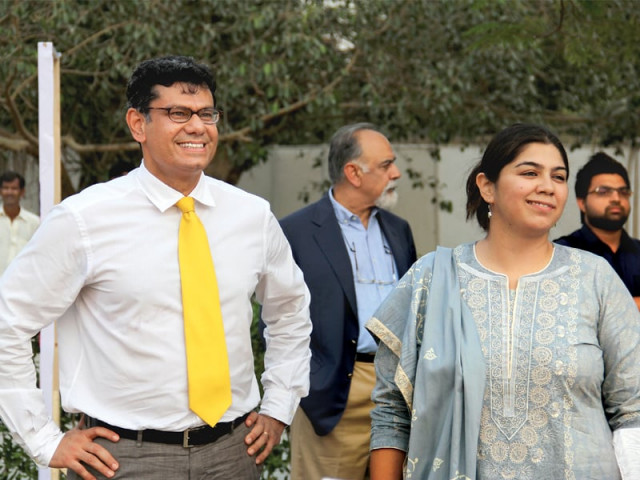Second batch of fellows complete their training from Teach for Pakistan
The graduates will teach the next two academic sessions at 24 schools in Karachi and five in Lahore.

Second batch of fellows complete their training from Teach for Pakistan
Launched in January last year, the nationwide movement has already produced its second batch of fellows who will go on to educate at different institutions.
The programme, which attracted graduates from the top universities across the country, is reportedly growing in number and already gearing up for its third batch. “Last year, eight out of the 20 fellows were from the Lahore University of Management Sciences (LUMS) and this year, 17 students from the Institute of Business Administration (IBA) joined the programme,” said the 27-year-old CEO of the campaign, Khadija S Bakhtiar, at a ceremony held in honour of the second-batch fellows on Saturday.
The new batch will teach the next two academic sessions at 24 schools in Karachi and five in Lahore.
The programme started as an initiative of the Aman Foundation to offer the same quality of education to disadvantaged children as availed by those enrolled in private schools.
But Bakhtiar says that focusing only on the schools is not enough. “By giving exceptional graduates the opportunity to be successful teachers in challenging school environments, we can equip them with the motivation and insight to bring a systemic reform in education.”
The campaign is partnered with the Teach for All’s global network, which is working to expand educational opportunities in 22 countries around the world.
Education leaders
“The movement encompasses many concepts but the idea of leadership is what this programme is really about,” said the Aman Foundation CEO, Ahsan Jamil.
For Jamil, the project’s long-term goal is to create a movement of alumni who, inspired by their experiences in the classroom, go on to become lifelong leaders working across all fields to expand educational opportunity.
In terms of response from the students, the programme’s popularity is growing steadily as 42 fellows joined it after graduating from renowned institutions, such as LUMS, IBA, National University of Engineering and Technology and Karachi University. The fellows receive a stipend of around Rs25,000 a month.
Dreaming different dreams
Some of the students who enrolled to become fellows said that they had to convince their parents that they were not wasting their futures and education by not applying for corporate jobs. Anam Palla, a Teach for Pakistan 2011 fellow and an IBA graduate, said that her parents were skeptical about her choice till they saw her receiving training at the summer institute. “Afterwards, I had their full support,” said Palla. “We were introduced to a completely different world during our six-week training where local and foreign trainers explained teaching in ways we had never heard before.”
Being a fellow, Palla had the choice to apply for different management concepts and appeared confident about her future in the education management sector.
Syed Ali Ahsan, a finance and management undergraduate from the University of Nottingham, found out about the programme a year back. “Initially, I didn’t know much about the programme and my parents weren’t too sure either, but for some reason I wanted to experience it,” said Ahsan. “I’m not sure how I’ll manage after the fellowship but I know for sure that I won’t leave the cause and the children.” He plans to take up education management after completing further studies.
Another 2011 fellow and a graduate of law studies from the Shaheed Zulfikar Ali Bhutto Institute of Science and Technology, Anum Iqbal, was associated with a private law firm. She got to know about Teach for Pakistan through a social networking website and submitted her application. Once accepted, Iqbal said that it was not difficult for her to give preference to the campaign over the law firm.
Published in The Express Tribune, August 13th, 2012.



















COMMENTS
Comments are moderated and generally will be posted if they are on-topic and not abusive.
For more information, please see our Comments FAQ